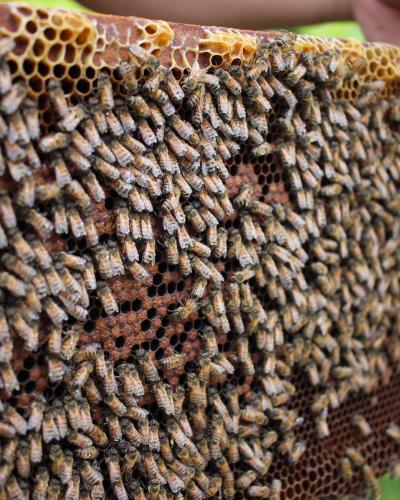A recent study from China found that organically grown strawberries are sweeter, more aromatic and preferred by consumers...
Feb 27, 2025
Chronic exposure to pesticides can accelerate the progression of Parkinson’s disease, according to a recent UCLA study. The...
Feb 08, 2022
New-generation pesticides are often developed to replace earlier, more toxic chemicals in effort to clean up the environmental and human health impacts of these older agricultural pesticides....
Apr 19, 2021
A recent study in the journal Environmental Pollution is the first to show that chronic exposure to pesticides reduces fitness and reproduction of birds. Populations of farmland birds have been...
Mar 01, 2021
DDT is an insecticide commonly used to control mosquito-transmitted malaria in the 1900s, but was eventually banned across the globe because of extremely adverse side effects on human and...
Dec 02, 2019
Photo Credit: Jean Wimmerlin
Neonicotinoids are neurotoxic pesticides commonly used in conventional agriculture since the early 1990s. They are now known to contribute to...
Sep 30, 2019
Photo Credit: Juan Encalada
A six-month diet interventional study recently published in the journal Environment International shows that eating mostly organic produce can...
Sep 23, 2019
Photo Credit: Alessandra Gaioni
Exposure to harsh pesticides like organophosphates is linked to symptoms of neurobehavioral issues in children. New research uses...
Sep 02, 2019
Photo Credit: Vadim Karnakhin
A study recently published in the Journal of Applied Ecology found that organic agriculture can significantly increase the health of honeybee...
Aug 12, 2019
Photo Credit: Eva Fan
A recent study published in the journal Global Ecology and Conservation found that farmers are more likely to purchase less expensive pesticides, and...













